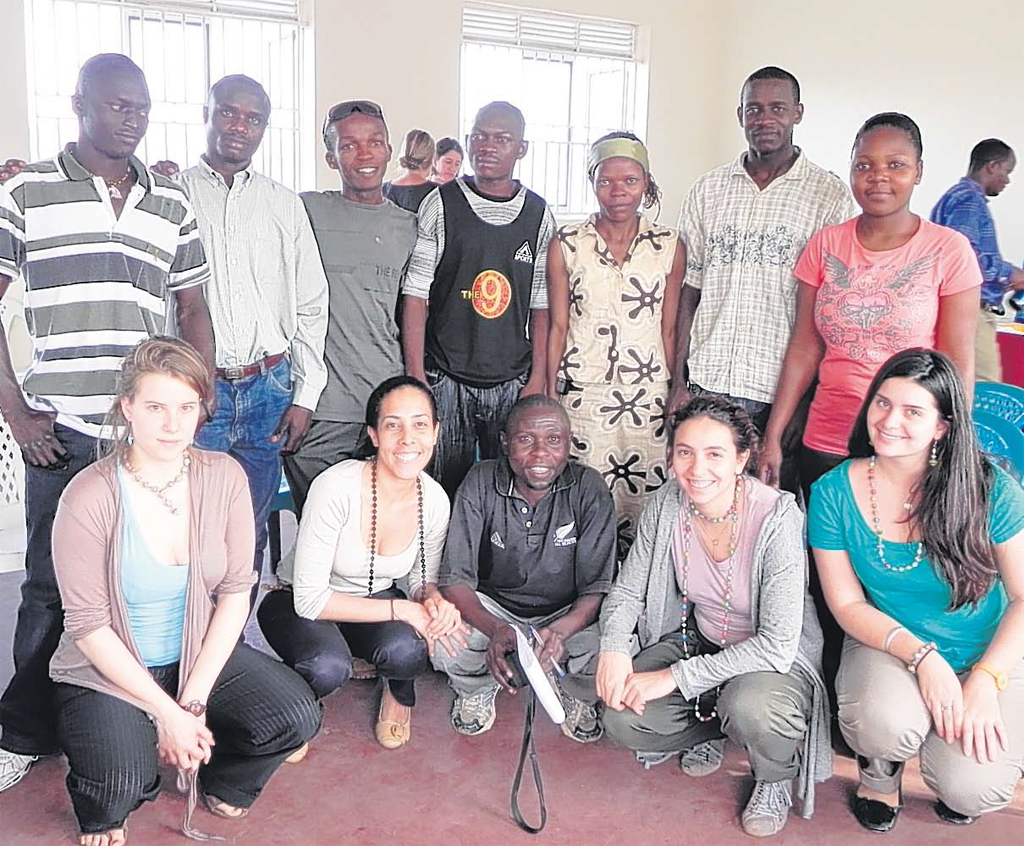Apply your conscience creatively
Masters courses with a strong social aspect are growing in popularity

Your support helps us to tell the story
From reproductive rights to climate change to Big Tech, The Independent is on the ground when the story is developing. Whether it's investigating the financials of Elon Musk's pro-Trump PAC or producing our latest documentary, 'The A Word', which shines a light on the American women fighting for reproductive rights, we know how important it is to parse out the facts from the messaging.
At such a critical moment in US history, we need reporters on the ground. Your donation allows us to keep sending journalists to speak to both sides of the story.
The Independent is trusted by Americans across the entire political spectrum. And unlike many other quality news outlets, we choose not to lock Americans out of our reporting and analysis with paywalls. We believe quality journalism should be available to everyone, paid for by those who can afford it.
Your support makes all the difference.ESCP Europe is integrating a social enterprise project into its Masters in marketing and creativity. For the past five years volunteer students from ESCP Europe have worked in deprived communities in Africa through a scheme run by The Great Generation, a community development charity.
Last year nine students travelled to Uganda to spend two weeks helping to raise money for the Kyebando Vocational Training Centre (KVTC), which works with children affected by HIV/Aids.
"An increasing number of students were enthusiastic to get involved," says Marie Taillard, associate professor of marketing at ESCP Europe, "so we decided to include the project in the Masters programme because it's exactly what creativity marketing is about. Constraints such as a tiny budget and limited access to resources means you have to be extremely creative. By putting students into these real-life situations they have to do something phenomenal with no resources, and they've responded very positively to the challenge."
Students must each raise £1,400 to cover the cost of flights, food, travel and accommodation. They meet the project leaders and The Great Generation regularly to plan their fundraising activities and tasks. In 2010 the group created a strategic business plan for KVTC and gave training in marketing and communications.
The 2011 group, which included Pietro Lo Casto, an advertising account manager in a technology company, built on the previous year's work. "The vocational training centre in Kampala had had no income for six months," Lo Casto says, "so our goal was to find quick ways to make money and keep it running. We found locals spent their spare cash on two items – mobile phone top-ups, and cakes. We decided to focus on cakes, and researched what would be popular, costed ingredients and organised a local café to train the students. We also found internships for some of them at an upmarket Kampala hotel."
Lo Castro and his fellow students built an oven for the catering venture Kyebando Ovens, drafted an action plan making recommendations on the type of products to sell and clients to target and designed new packaging for the cakes. "We also helped the students build their employability skills," he says, "by helping them write their CVs and prepare for interviews."
Lo Castro feels frustrated that this year's team will be working with a different community. "I feel we really helped these people, but it's been difficult to communicate with them since we left and I have no idea whether they turned the enterprise into a sustainable business. It would have been good to follow up and offer the Centre continuing support and make use of ESCP Europe's considerable resources, for example bringing in students from the school's Masters in Hospitality."
The experience, though, has been valuable. "Everyone was involved from start to finish, doing marketing, management and creating a business from scratch – it was a great experiment in innovation."
The Great Generation projects tick all the boxes for potential employers, claims Simon Healeas, deputy director of MBA programmes at Westminster Business School, whose students also take part in Great Generation schemes. "Students learn to work individually and in teams, and they learn how to manage complexity and ambiguity. The projects raise cross-cultural awareness, taking social entrepreneurship out of the classroom and applying it in a practical context. We want to get away from the idea of the MBA as a means of enhancing your career in terms of salary and promotions, and to give people an idea of social consciousness. It's better to do something than just talk about it."
The Westminster project runs twice a year: in September 13 students will go out to Kampala for two weeks to work with four NGOs. The Great Generation allocates projects based on students' CVs, and works closely with them in researching the country, the community and the project.
"Although there's a limit to preparing people for the slums of Mumbai – they have to experience it," says Healeas. "We take them out of their comfort zone and make them think on their feet."
"In effect our people do a management consultancy, helping to improve the charity's HR or IT systems, or producing a strategic plan" he says. "There's a time constraint because it's just one module of a 10-module degree, but the participants often remain in contact and the business school maintains an ongoing relationship with the charities. This is not the western approach of managing from behind a desk. We want to get lots of people involved so that our MBA has a very clear social conscience."
Join our commenting forum
Join thought-provoking conversations, follow other Independent readers and see their replies
Comments